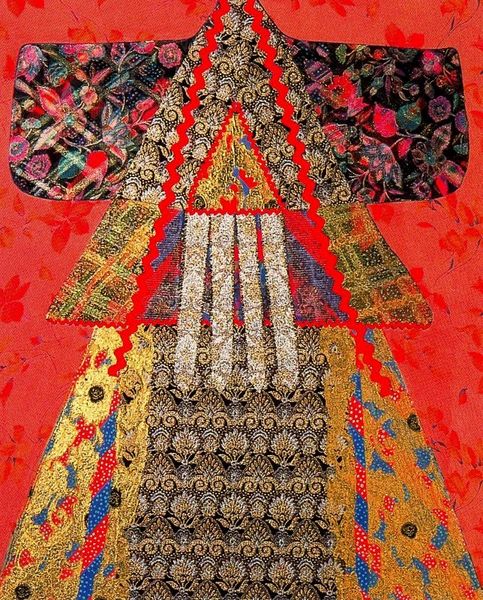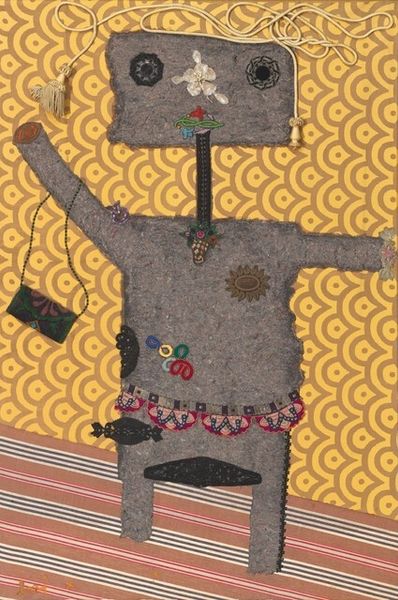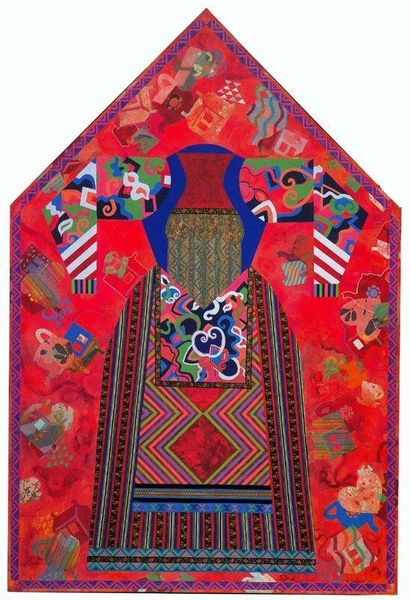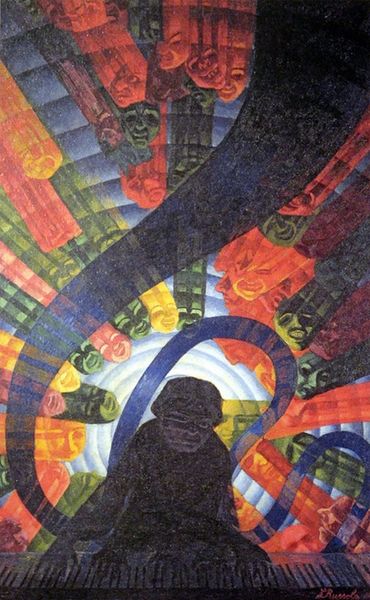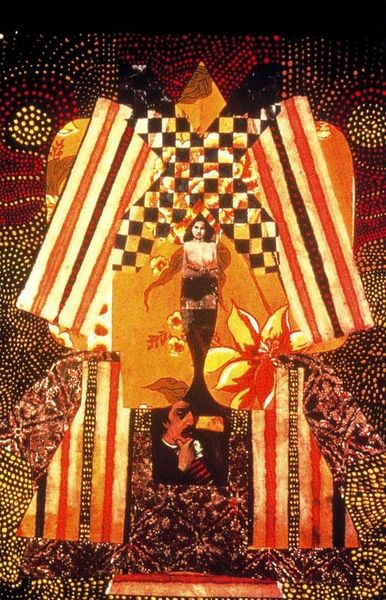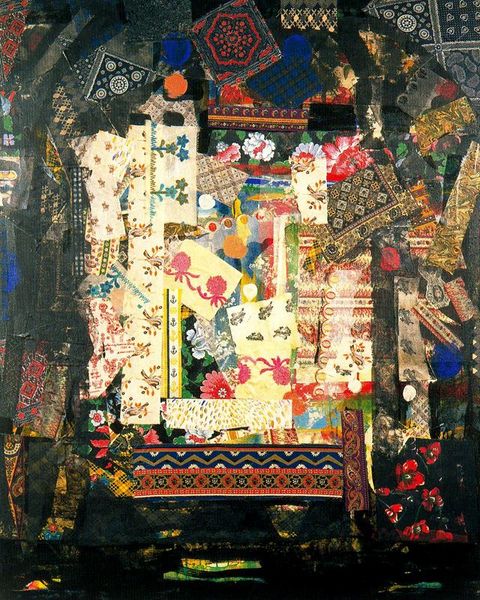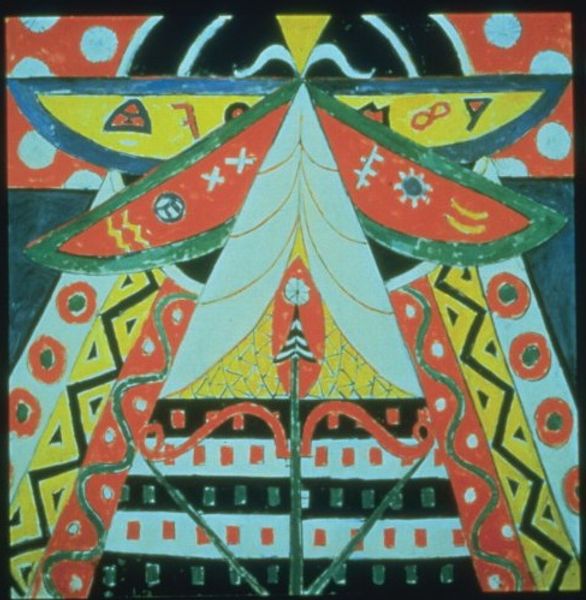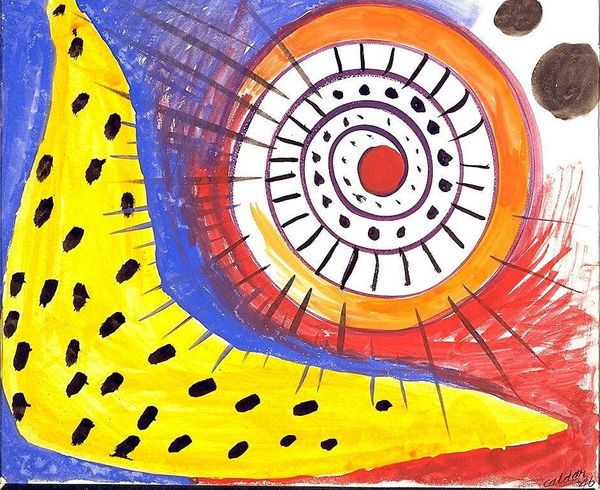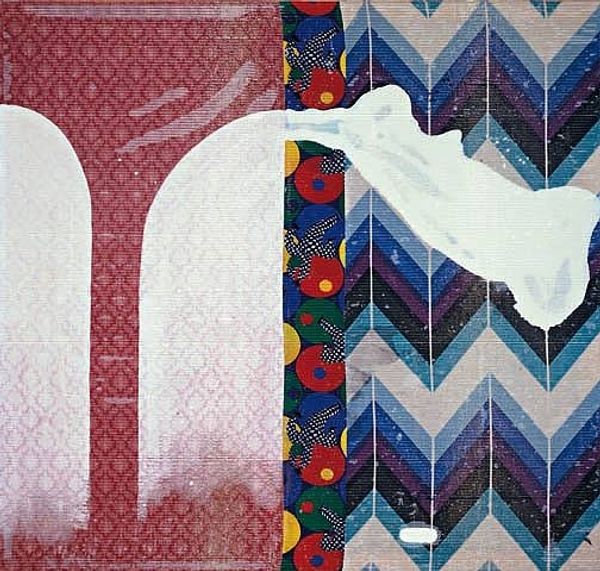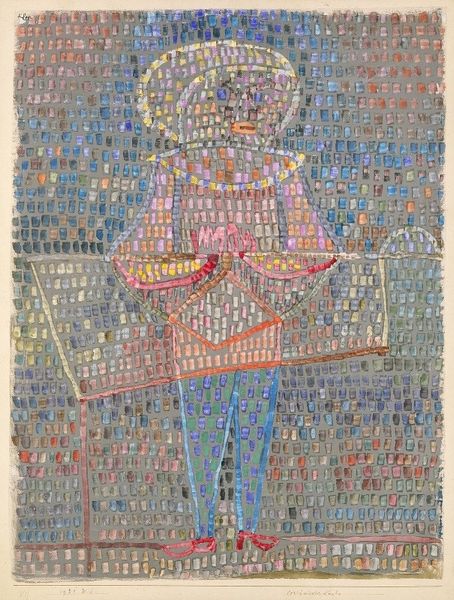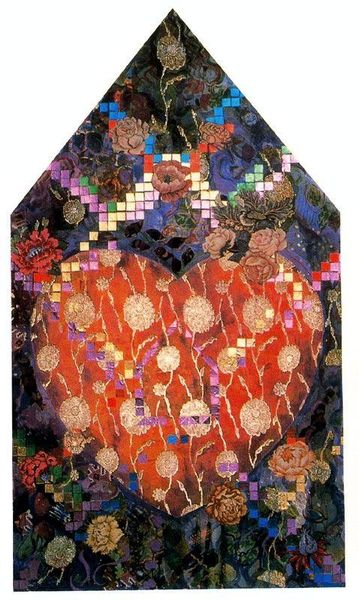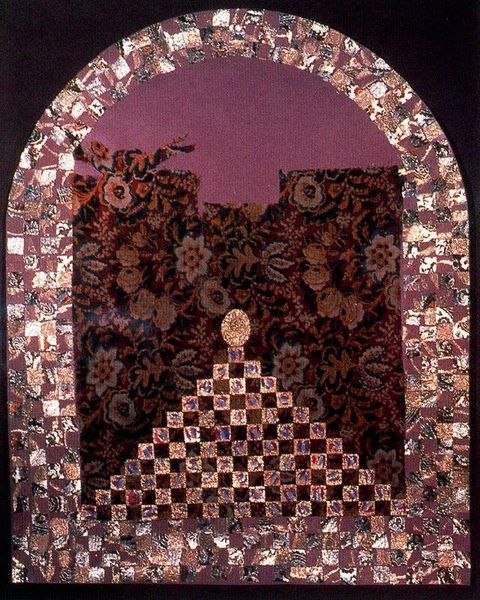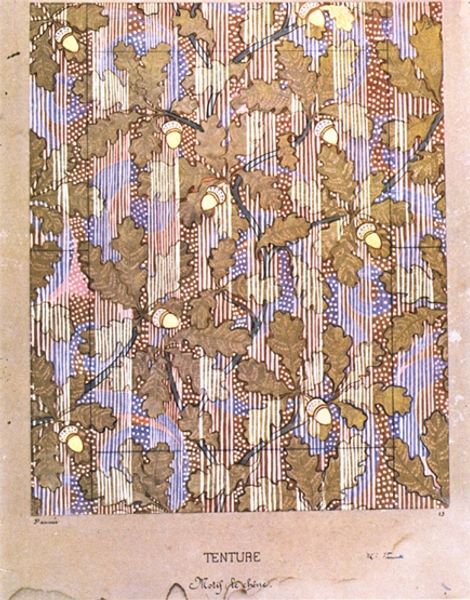
fibre-art, collage, textile
#
pattern-and-decoration
#
fibre-art
#
collage
#
repeated pattern
#
loose pattern
#
textile
#
geometric pattern
#
abstract pattern
#
repetition of pattern
#
vertical pattern
#
pattern repetition
#
layered pattern
#
combined pattern
#
repetitive pattern
Copyright: Miriam Schapiro,Fair Use
Curator: This mixed-media artwork by Miriam Schapiro is titled "The First Theater." The use of textile is remarkable, isn't it? Editor: It has a vibrant, almost theatrical energy. The way those colors clash and the geometric patterns play off each other – it's quite bold. Is it dated? I can't find its date, anywhere. Curator: While its creation date isn't precisely known, its clear affiliation with the Pattern and Decoration movement firmly situates it within a specific art-historical context. You can see it as a radical shift against the minimalist aesthetics that dominated the art world previously. Editor: Absolutely, and that defiance is materialized in the choice of medium itself. Schapiro embraces the traditionally 'feminine' craft of textiles, challenging established art hierarchies. Where does 'theater' come into this, though? It isn't overt. Curator: Well, consider the architecture it creates, with that central vertical band and framed perimeter suggesting a stage. This artwork engages with the societal perception of women's roles—literally giving them a 'stage'. It is an assertion of agency, especially through these so-called 'craft' materials. Editor: Interesting, how the context shapes your perspective on that vertical, almost door-like structure in the center, framed by a proscenium of riotous fabric. It reminds me of spaces granted or seized. There is something almost naive, perhaps childlike, about that blue backdrop though. Curator: Childlike? I think it’s about reclaiming what had been previously invalidated in patriarchal narratives. Editor: True, and viewing the pattern work around it with that frame of mind changes its valence. These colors would have been used for, say, feminine crafts or homewares. By elevating them, it becomes more profound than an arrangement of colors, of materials. Curator: Right, by incorporating these diverse patterns and fabrics, Schapiro is challenging not only our perception of art but also the cultural biases embedded within our institutions. We see how the history of this piece impacts it. Editor: Agreed. Seeing that connection allows us to view the construction and its textile materiality as the medium to create a bold and important cultural commentary, today as much as when it was first created.
Comments
No comments
Be the first to comment and join the conversation on the ultimate creative platform.
